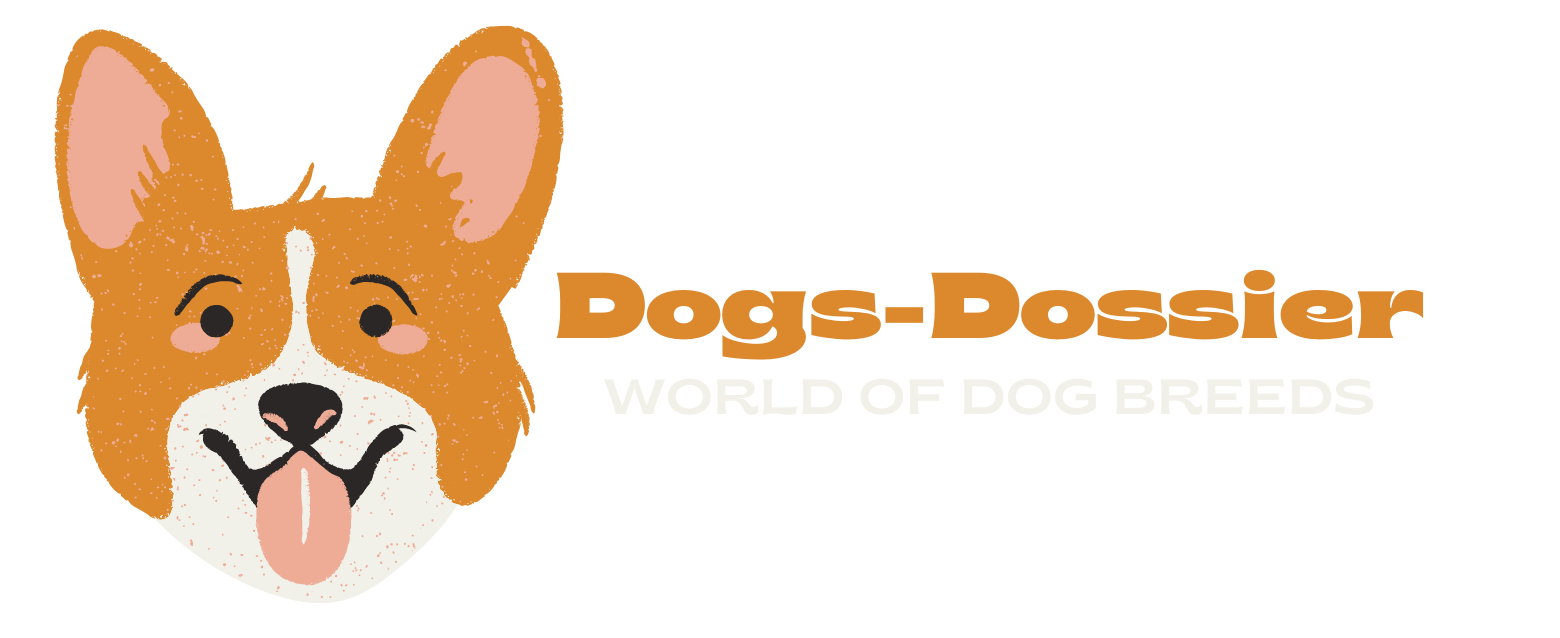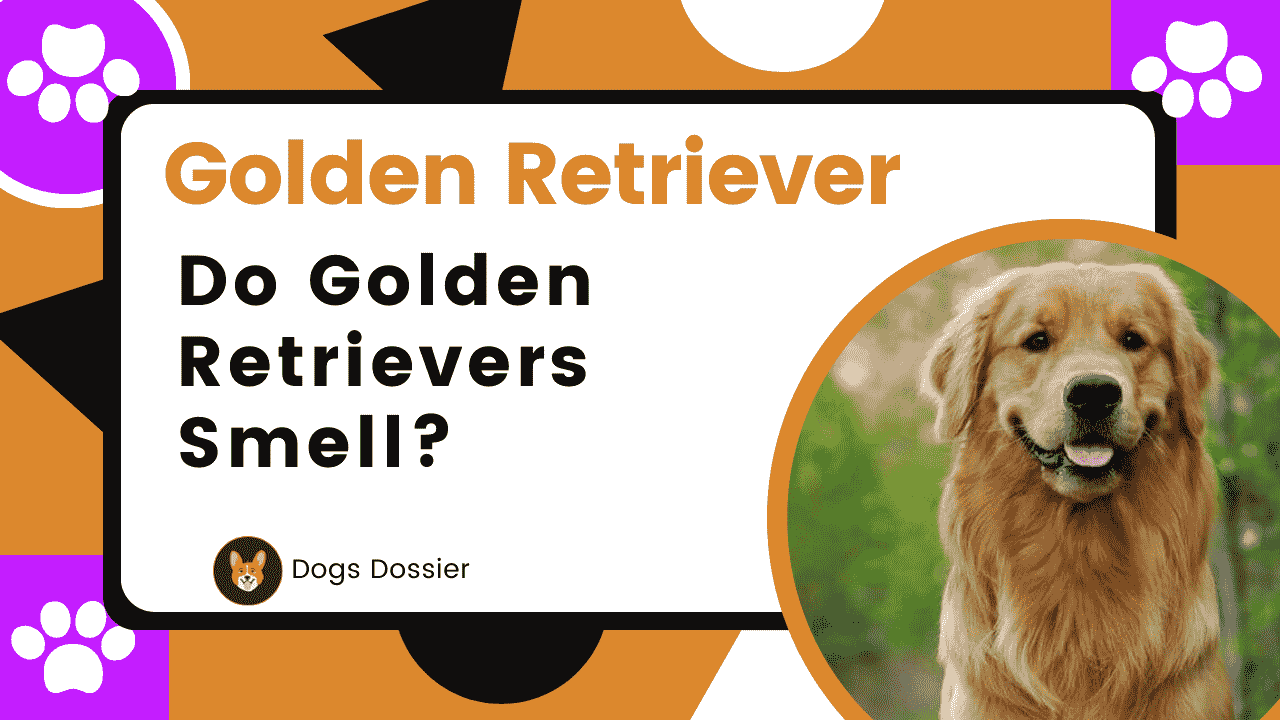Do Golden Retrievers Smell? Understanding and Managing Odor in Your Pet
Golden Retrievers are renowned for their friendly demeanor, intelligence, and loyalty, making them one of the most beloved dog breeds worldwide.
However, like all dogs, Golden Retrievers are not immune to emitting odors.
Understanding why some Golden Retrievers smell and how to manage it is crucial for maintaining a clean and healthy environment for both your pet and your family.
Golden Retrievers
Golden Retrievers originated in Scotland during the mid-19th century, where they were bred as hunting companions known for their ability to retrieve game from both land and water.
Over time, their gentle temperament and versatility have made them popular as family pets and service dogs.

Understanding Canine Odor
Understanding canine odor involves recognizing that dogs have a keen sense of smell, which is crucial for communication and survival.
Factors such as genetics, diet, hygiene, and overall health can influence how a dog smells.
Genetically, some breeds are predisposed to emit stronger odors than others. Additionally, a dog’s diet plays a significant role in their body odor.
High-quality, balanced diets can promote healthy skin and coat, reducing the likelihood of excessive odor.
Hygiene also plays a vital role in managing canine odor. Regular grooming, including bathing with a mild dog shampoo, brushing to remove loose hair and debris, and cleaning ears and teeth, can help minimize odors.
Moreover, maintaining a clean environment for your dog, such as washing bedding and regularly cleaning living spaces, can also contribute to odor control.
Overall health is another crucial factor. Underlying health issues such as skin infections, dental problems, or gastrointestinal issues can contribute to an increase in odor.
Monitoring your dog’s health and addressing any concerns promptly can help manage odor effectively.
Do Golden Retrievers Smell?
Yes, Golden Retrievers can emit odors, primarily due to factors such as natural oils produced by their skin, trapped dirt and debris in their dense coats, and bacterial growth, especially in areas with skin folds or long hair.
These factors, combined with their active lifestyle and predisposition to certain health issues, can contribute to noticeable odors.
However, with regular grooming, proper hygiene practices, a balanced diet, and prompt attention to any health concerns, pet owners can effectively manage and minimize odor in Golden Retrievers, ensuring a pleasant living environment for both the dog and its human companions.
Why Do Some Dogs Smell More Than Others?
Some dogs may smell more than others due to various factors such as genetic predispositions, coat type, grooming habits, and overall health.
Certain breeds are genetically predisposed to emit stronger odors, while others may have coats that trap dirt and debris more easily.
Additionally, dogs with long or dense coats may be more prone to odor buildup if not regularly groomed. Factors like diet and health can also play a significant role, as underlying health issues or poor nutrition can contribute to increased body odor.
By understanding these factors and implementing proper care and maintenance routines, pet owners can help minimize odor in their dogs and maintain a clean and pleasant living environment.
Grooming Tips for Reducing Odor
Rooming plays a crucial role in reducing odor in dogs, including Golden Retrievers. Here are some grooming tips to help minimize odor:
Regular Bathing: Bathe your Golden Retriever with a mild dog shampoo every 4-6 weeks to remove dirt, oils, and odor-causing bacteria from their coat.
Brushing: Brush your dog’s coat regularly to remove loose hair and debris that can contribute to odor buildup. Use a slicker brush or grooming mitt to reach deep into their dense fur.
De-shedding: Use a de-shedding tool to remove loose undercoat hair, which can trap dirt and oils and contribute to odor. Regular de-shedding can help keep your dog’s coat clean and fresh.
Ear Care: Clean your dog’s ears regularly to prevent wax buildup and infections, which can contribute to ear odor. Use a veterinarian-recommended ear cleaner and gently wipe away dirt and debris.
Dental Care: Maintain your dog’s dental hygiene by brushing their teeth regularly and providing dental chews or toys to help reduce plaque and tartar buildup. Good oral hygiene can prevent bad breath and associated odors.
Trimming: Keep your dog’s nails trimmed to prevent them from becoming overgrown and causing discomfort. Long nails can also trap dirt and debris, leading to odor.
Diet and Nutrition
Diet and nutrition play a significant role in controlling odor in Golden Retrievers. Here’s how:
Quality Food: Feed your Golden Retriever a high-quality, balanced diet formulated for their age, size, and activity level. Look for dog foods that list real meat as the primary ingredient and avoid those with fillers or artificial additives.
Omega-3 Fatty Acids: Choose dog foods rich in omega-3 fatty acids, such as fish oil or flaxseed, as these nutrients help promote healthy skin and coat. A healthy coat is less likely to harbor odor-causing bacteria.
Hydration: Ensure your dog has access to clean, fresh water at all times. Proper hydration supports overall health and can help flush toxins from the body, reducing body odor.
Portion Control: Avoid overfeeding your Golden Retriever, as excess weight can lead to skin issues and increased body odor. Follow feeding guidelines provided by your veterinarian or pet food manufacturer.
Limited Treats: Limit high-fat or high-calorie treats, as excessive indulgence can contribute to weight gain and potential skin issues. Opt for healthy, low-calorie treats or incorporate fresh fruits and vegetables into your dog’s diet.
Consultation with Vet: Consult with your veterinarian to determine if any dietary modifications are necessary based on your dog’s individual needs and health concerns.

Health Concerns and Odor
Health concerns can contribute to odor in Golden Retrievers. Here’s how to address them:
- Skin Infections: Skin infections, such as bacterial or fungal infections, can cause unpleasant odors. Keep an eye out for signs of redness, itching, or discharge, and consult your veterinarian if you suspect an infection.
- Gastrointestinal Issues: Digestive problems, such as diarrhea or excessive gas, can result in foul-smelling stools and body odor. Ensure your dog’s diet is suitable for their digestive health and consult your vet if gastrointestinal issues persist.
- Ear Infections: Ear infections can cause a distinct odor, often accompanied by discharge or excessive ear scratching. Keep your dog’s ears clean and dry, and seek veterinary attention if you notice any signs of infection.
- Anal Gland Issues: Anal gland problems can lead to strong, unpleasant odors emanating from the rear end. If your dog is scooting or displaying signs of discomfort, have their anal glands checked by a veterinarian.
- Overall Health Check-Up: Regular veterinary check-ups are essential for monitoring your dog’s overall health and addressing any underlying issues that may contribute to odor. Discuss any concerns or changes in odor with your veterinarian during routine visits.
The Role of Exercise
Physical activity is not only vital for your Golden Retriever’s overall health and well-being but can also help reduce odor by promoting circulation and sweating, which can flush out toxins from the body.
Managing Environmental Factors
Managing environmental factors is crucial for controlling odor in Golden Retrievers. Here are some tips:
- Avoid Strong Odors: Limit your dog’s exposure to strong-smelling substances such as cigarette smoke, harsh chemicals, or strong perfumes, as these can contribute to unpleasant odors.
- Ventilation: Ensure proper ventilation in your home to reduce stagnant air and prevent odor buildup. Use fans or open windows to promote air circulation, especially in areas where your dog spends a lot of time.
- Clean Living Spaces: Regularly clean and disinfect your dog’s living areas, including bedding, crates, and toys, to eliminate odor-causing bacteria and debris. Use pet-safe cleaning products to avoid exposing your dog to harmful chemicals.
- Outdoor Time: Allow your dog plenty of outdoor time in well-ventilated areas to help reduce indoor odors. Regular exercise and outdoor play can also promote overall health and well-being, which can contribute to reduced body odor.
- Air Purifiers: Consider using an air purifier with a HEPA filter to remove airborne allergens, bacteria, and odors from your home. This can be especially beneficial for households with multiple pets or individuals sensitive to pet odors.
- Litter Box Maintenance: If you have other pets, such as cats, ensure that litter boxes are cleaned regularly to prevent strong odors from permeating your home. Use clumping litter and scoop waste daily to keep the area clean and odor-free.
Home Remedies for Odor Control
There are several natural remedies and DIY grooming techniques that can help control odor in Golden Retrievers, including using baking soda as a deodorizer and incorporating essential oils into grooming routines.

Maintaining a Healthy Relationship
Maintaining a healthy relationship with your Golden Retriever is essential for both you and your pet’s well-being. Here’s how to foster a strong bond:
- Quality Time: Spend quality time with your Golden Retriever, engaging in activities such as walks, playtime, and training sessions. This strengthens your bond and promotes trust and companionship.
- Positive Reinforcement: Use positive reinforcement techniques, such as treats and praise, to reward good behavior and encourage desired actions. This creates a positive association with you and reinforces your role as a trusted companion.
- Clear Communication: Establish clear communication with your dog through consistent commands and cues. This helps your Golden Retriever understand what is expected of them and fosters mutual respect and understanding.
- Affection and Attention: Show your Golden Retriever affection and attention regularly through cuddles, belly rubs, and verbal praise. This reassures them of your love and strengthens your bond.
- Respect Boundaries: Respect your dog’s boundaries and signals, such as avoiding unwanted interactions or respecting their need for personal space. This demonstrates empathy and builds trust.
FAQs: Golden Retrievers
How often should I bathe my Golden Retriever to control odor?
It’s best to bathe your Golden Retriever every 4-6 weeks, using a mild dog shampoo to avoid stripping their coat of essential oils.
Are there any specific dietary recommendations for reducing odor in Golden Retrievers?
Opt for high-quality dog food rich in omega-3 fatty acids, which promote healthy skin and coat and can help minimize odor.
What should I do if my Golden Retriever’s odor suddenly becomes more noticeable?
Schedule a veterinary check-up to rule out any underlying health issues contributing to the change in odor.
Can over-bathing contribute to skin problems in Golden Retrievers?
Yes, excessive bathing can strip the skin of natural oils, leading to dryness and irritation. Stick to a regular bathing schedule and use gentle, dog-specific shampoos.
Are there any specific grooming tools I should use to control odor in my Golden Retriever?
A slicker brush and de-shedding tool are excellent for removing loose hair and debris from your Golden Retriever’s coat, helping to minimize odor buildup.
Conclusion
While Golden Retrievers may have a reputation for emitting odors, proactive care and maintenance can significantly reduce any unpleasant smells associated with the breed.
By understanding the factors contributing to odor, implementing regular grooming routines, maintaining a healthy diet, and addressing any health concerns promptly, you can enjoy a clean and harmonious living environment with your beloved Golden Retriever.





